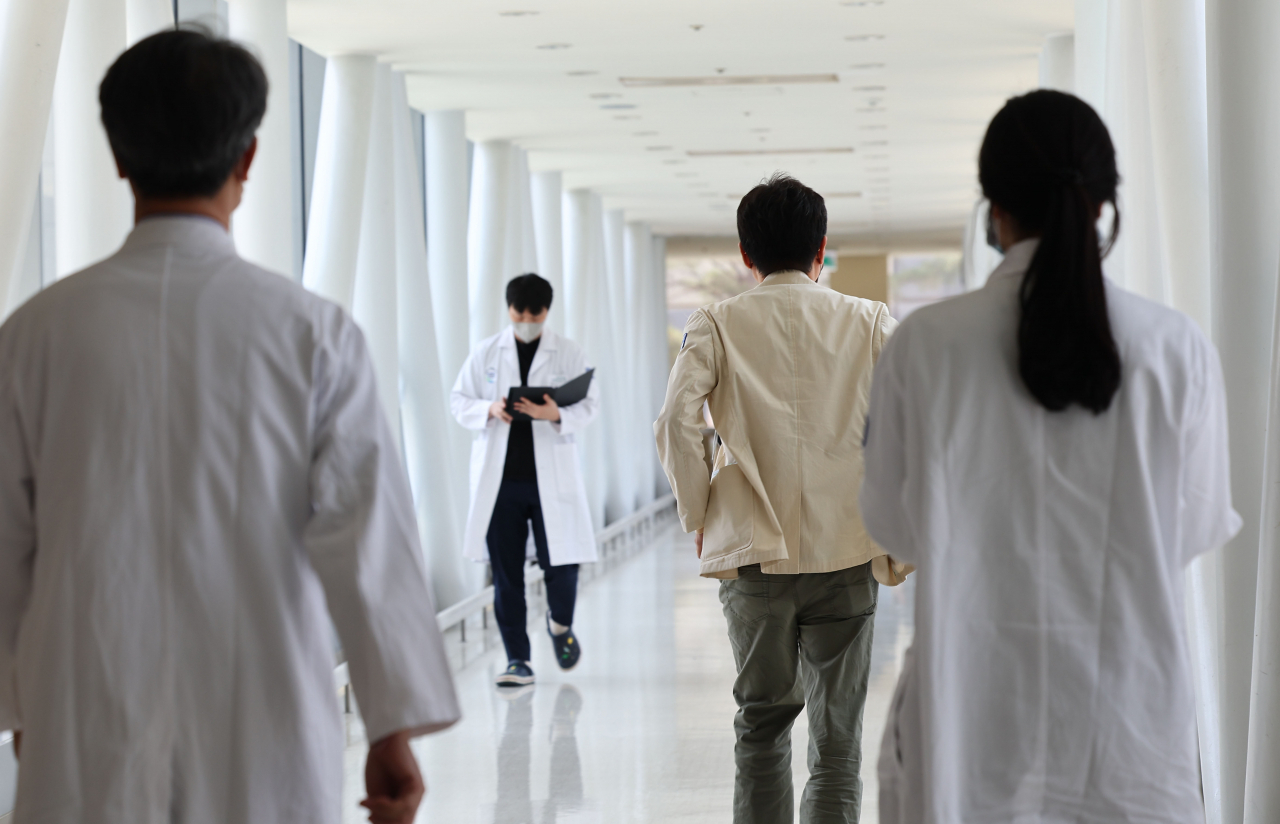What's next for the government's push in quota hike?
Government set to finalize procedures for next year's college admissions, but stalemate with medics remains a major issue
By Park Jun-heePublished : May 17, 2024 - 16:17

The Seoul High Court's critical ruling Thursday dismissing doctors groups' request for an injunction to halt the nationwide medical school expansion, has cleared the path for the first increase in medical student admissions in 27 years.
With the hurdle removed, the government vowed Friday to expedite the remaining procedures for the 2025 school year college admissions, such as reflecting the changes in each university's college admissions and gaining approval for the plans by the Korean Council for University Education by the end of this month.
"(The government) will spare no effort in preparing to improve medical education and ensure that the quality of such (will not deteriorate)," Jun Byung-wang, a policy chief at the Health Ministry, told reporters during Friday's briefing, renewing the Yoon Suk Yeol administration's commitment to accomplish health care reform.
In addition, the government announced plans to roll out what it calls "the plan to advance medical education," which aims to improve the country's medical environment and conditions on par with leading countries in health care.
Under the scheme, the government aims to enhance the infrastructure for medical schools by providing better supplies and teaching personnel, according to Choi Eun-hee, the chief of the Education Ministry's Office of Human Capital Policy.
"The plan will also include how (the country) should improve the educational quality in line with the demands of the future society and in the way the government aims to pursue its medical reform policies," Choi said during the same briefing. She declined to provide an exact timeframe.
The government also said the previous day that it would hire 1,000 medical professors at national universities as the new slots were allocated to non-metropolitan areas to broaden the reach of health care services and "invest boldly" in schools based on the survey it conducted on 32 medical schools granted the increase.
Lingering medical stalemate
Despite the court ruling against the injunction, the government still faces the challenge of resolving the deadlock in negotiations with the medical sector, which vehemently opposes the increase in the number of medical school places.
Observers say the ongoing rift will likely widen, as doctors have repeatedly demanded scrapping the medical school expansion and reconsidering the plan from scratch.
A day after the ruling, the medical community released a joint statement announcing that they would prepare to appeal to the Supreme Court and would not change their course to "set the country's medical system right."
"The government's medical school expansion plan is not for the wellbeing of public welfare but will put (the country's) public welfare in peril in the future. Serious harm will occur to patients, medical staff and the entire nation," it read. The statement was written by the Korean Medical Association, Korean Academy of Medical Services, Medical Professors Association of Korea and the emergency committee of professors at 19 medical schools.
"Health care should only be a tool for the people. Please give us support so that health care no longer becomes a tool of politics," the statement further stated.
Medical professors have warned that they will adjust their work hours if the government finalizes the plan. The specifics will likely take shape after their general meeting scheduled for next week.
Junior doctors and medical students, regarded as the pillars of the country's future health care, said they would not return to work or their classrooms unless the government scraps the quota hike, which will cause immense harm and disruptions at hospitals.
Resident doctors in their fourth year must return to their training hospitals within three months to obtain their specialist qualifications for next year, according to the Health Ministry. However, if there's a gap during their residency, they must undergo additional training under the country's regulation on the training and qualification of medical specialists, which could lead to a shortage of doctors at medical institutions.






![[Graphic News] Instagram overtakes Naver as 3rd most popular mobile app in S. Korea](http://res.heraldm.com/phpwas/restmb_idxmake.php?idx=644&simg=/content/image/2024/05/30/20240530050800_0.gif&u=)
![[Daniel DePetris] China’s message to Taiwan’s president](http://res.heraldm.com/phpwas/restmb_idxmake.php?idx=644&simg=/content/image/2024/05/30/20240530050781_0.jpg&u=)


![[Photo News] Series of butane explosions destroys cars in Busan parking lot](http://res.heraldm.com/phpwas/restmb_idxmake.php?idx=644&simg=/content/image/2024/05/31/20240531050568_0.gif&u=)









![[Today’s K-pop] NewJeans pop-up store to open in Seoul](http://res.heraldm.com/phpwas/restmb_idxmake.php?idx=642&simg=/content/image/2024/05/31/20240531050593_0.jpg&u=)